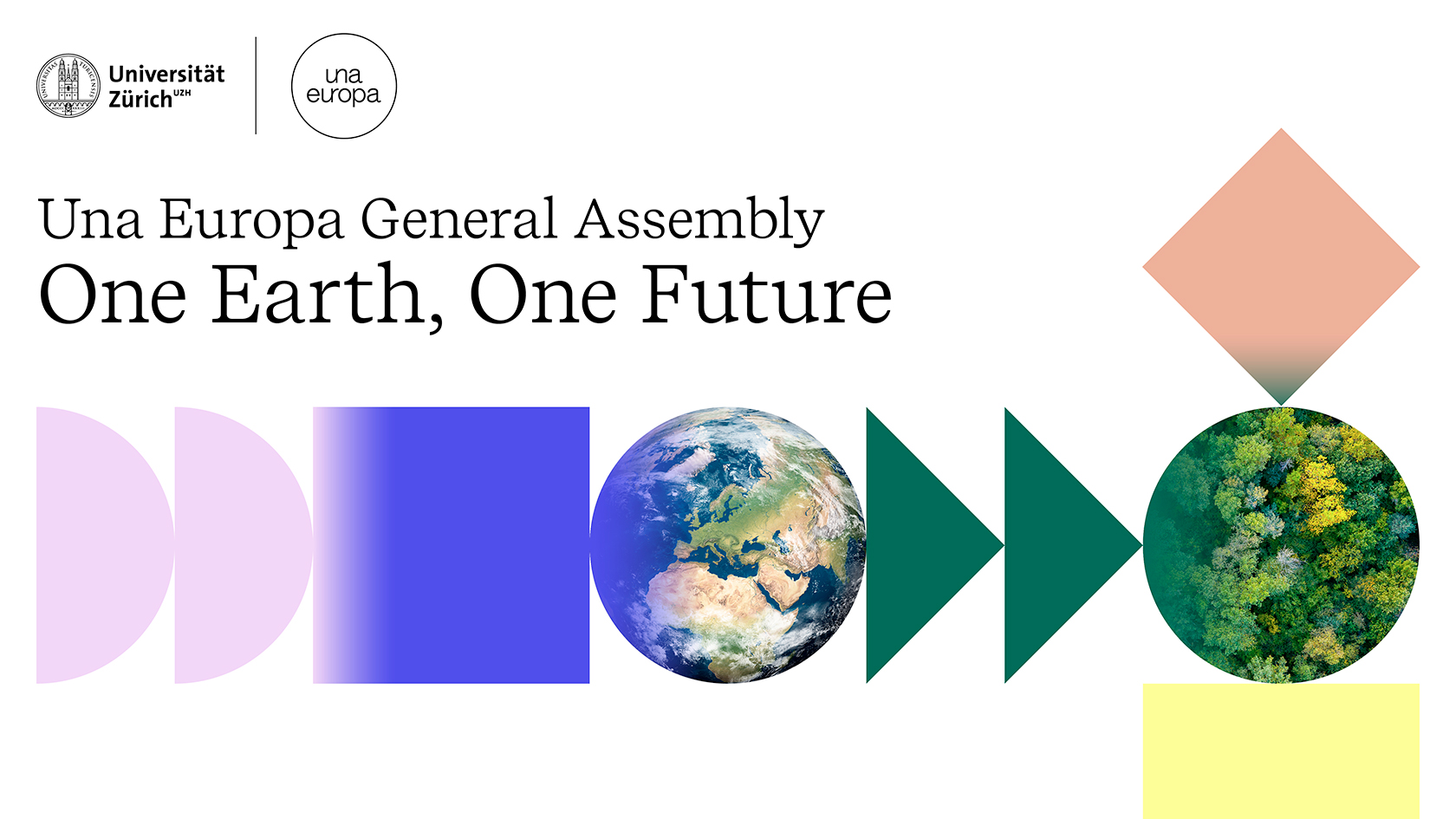Europe Visits UZH

The University of Zurich has been a member of Una Europa for two years now. The alliance has enabled UZH to forge partnerships with like-minded European universities and to expand its network in the European teaching and research space. UZH has now invited its partner universities to the Una Europa General Assembly, to be held next week from 19 to 21 June. “We are proud to be part of Una Europa,” says Michael Schaepman, President of UZH. According to Schaepman, hosting this year's General Assembly offers the University of Zurich and all participating universities an excellent opportunity to connect with more members of the Una Europa network at both university and personal levels. He continues: “Working closely together makes us all stronger, so that together we can set the course for university education in Europe, and also show the way beyond Europe’s borders”.
UZH’s commitment and vision within the Una Europa alliance
The Una Europa alliance was established in 2019. It consists of 11 of Europe’s leading universities, which discuss and align with each other at all levels on education, research and teaching. There are also formats to address common issues such as sustainability, Europe’s role in the world and artificial intelligence. Where collaboration is concerned, Una Europa always emphasizes an interdisciplinary approach and an open working culture. Ultimately, it is pursuing the ambitious goal of a University of the Future that will play a pivotal role in finding solutions to global challenges. This university is not tied to a physical place, neither does it believe in rigid boundaries between disciplines. Instead, it is a body of knowledge, ideas and values, evolving freely beyond borders, mediums and time. (Manifest, Una Europa)
One Earth, One Future
The underlying theme of the General Assembly at UZH is One Earth, One Future. All of the content revolves around One Health – a holistic perspective on human, animal and environmental health that allows both local and global health problems to be tackled more effectively. This approach demands close interdisciplinary collaboration, which is itself at the heart of the event. “All attendees are invited to engage with new forms and structures of interdisciplinary collaboration and to learn from each other. We want to find out what already works, and what practical things we can do as universities and as a network to improve,” says Elisabeth Stark, Vice President Research at UZH and Member of the Board of Directors of Una Europa. As she describes it, the aim during the General Assembly is to take a further step towards interdisciplinary collaboration. One example might be to set up a working group within the Una Europa Research Strategy Group.
Interdisciplinary discussions and One Health
The Building Resilience Through One Health panel discussion on 20 June is also all about widening the field of vision. Streamed live from 6:30 to 8:00pm, a panel of respected experts will speak about what is needed from the One Health viewpoint to overcome pandemics and global health-related challenges. (See Box at the end of the article.)
Adrian Hehl, Vice Dean of Research and Academic Career Development at the Vetsuisse Faculty and one of the four UZH members of the Una Europa One Health Self-Steering Committee, sees enormous potential in the One Health strategy. “The One Health context brings people together who are open to breaking down siloed thinking, overcoming barriers, and sharing resources and knowledge. We need an open approach to solving the huge problems of the future. We hope that we can infect many others with the One Health ‘virus’”.
The focus on One Health at this year's General Assembly is also connected with the foundation of Europe's first One Health Institute at UZH in the summer of 2023. Laura Tüshaus Rudin, General Manager of the One Health Institute and member of the Una Europa One Health Self-Steering Committee is particularly happy: “It is great to see that we are bringing members of all Una Europa's Focus Areas together for the first time to raise their awareness of our domain. At the same we’ll be able to benefit from their experience in research into sustainability issues or on cultural heritage, for example.”
Text by Anne Boekhout; English translation by Jane Catterall